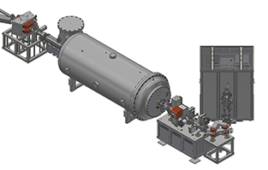
A joint research project between ExxonMobil and Synthetic Genomics is focusing on advanced biofuels involving the modification of an algae strain that more than doubled its oil content without significantly inhibiting the strain’s growth.
Scientists used advanced cell engineering technologies to modify an algae strain to enhance the algae’s oil content from 20 percent to more than 40 percent.
The researchers discovered a new process for increasing oil production by identifying a genetic switch that could regulate the conversion of carbon to oil in Nannochloropsis gaditana—a species of algae.
“This key milestone in our advanced biofuels program confirms our belief that algae can be incredibly productive as a renewable energy source with a corresponding positive contribution to our environment,” Vijay Swarup, vice president for research and development at ExxonMobil Research and Engineering Company, said in a statement. “Our work with Synthetic Genomics continues to be an important part of our broader research into lower-emission technologies to reduce the risk of climate change.”
Oliver Fetzer, Ph.D., chief executive officer at Synthetic Genomics, explained the importance of using algae for biofuels.
“The major inputs for phototropic algae production are sunlight and carbon dioxide, two resources that are abundant, sustainable and free,” Fetzer said in a statement. “Discoveries made through our partnership with ExxonMobil demonstrate how advanced cell engineering capabilities at Synthetic Genomics can unlock biology to optimize how we use these resources and create solutions for many of today’s sustainability challenges – from renewable energy to nutrition and human health.”
The researchers sought to increase the lipid content of algae while decreasing the starch and protein components without inhibiting growth.
Oil from algae may also be processed in conventional refineries, producing fuels no different from convenient, energy-dense diesel. Oil produced from algae holds promise as a potential feedstock for chemical manufacturing.




